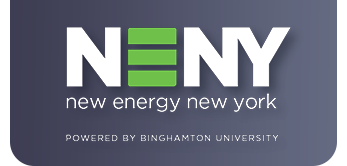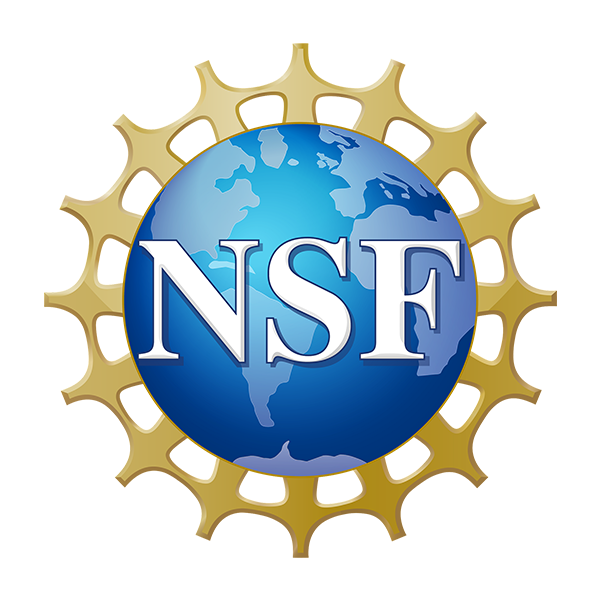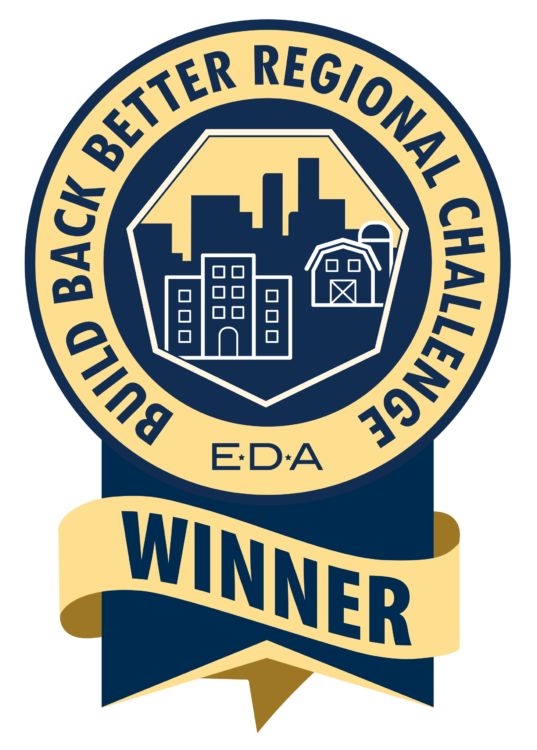Ateios Systems: Electrifying potential
Rajan Kumar, Ph.D., and his partners founded Ateios Systems in 2017 in San Diego, Calif., with ambitious goals: to dramatically increase the speed of electrode manufacturing, produce them solvent-free, decrease the size needed for giga factories and shrink the industry’s carbon footprint. Today, Ateios’ ambition has found its match in New Energy New York’s ChargeUp, the nation’s first battery-focused business accelerator.
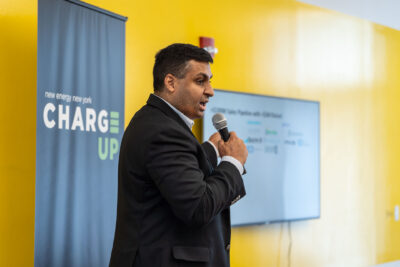
Since its founding, Ateios has been on the move. From San Diego, the company relocated to Newberry, Indiana, to take advantage of the resources of the area’s $15 million battery pilot facility called the Battery Innovation Center (BIC). Ateios also took part in the Innovation Crossroads program at Oak Ridge National Laboratory (ORNL) in Tennessee, partnering with the lab to develop technology that could shorten electrode processing times from minutes to seconds, significantly lower capital and operating costs, and reduce emissions. The fruit of that partnership was Ateios’ launch of RaiCore in July 2024, which enabled the world’s first PFA-free, solvent-free rechargeable lithium cobalt oxide (LCO) battery used in 33% of lithium-ion batteries.
About 95% of batteries use solvents, heat and perfluoroalkoxy alkane (PFA) polymers commonly known as “forever chemicals” in the production of lithium battery electrodes. RaiCore, however, uses energy-curable, PFA-free polymers, replacing traditional electrode manufacturing methods with one that’s cleaner, more scalable in its production and more efficient, enabling up to a 90% reduction in processing costs while increasing manufacturing speeds by up to five times.
RaiCore also addresses challenges in performance and regulatory compliance, with up to 20% more energy density over standard LCOs and improved battery life.
Challenges getting to the next level
Before the launch of RaiCore, Ateios had earned $3 million in initial and follow-on funding, including a grant from the National Science Foundation. While the company had a promising breakthrough to offer the world, it still had miles to go in building out its capacity and attracting investors. Ateios needed more resources. More marketing support. More space. More industry connections.
“We knew we needed help in polishing our pitch and doing our due diligence,” says Kumar, Ateios CEO. “It’s so critical that all the documentation is there”
As a New York state native, Kumar had tracked the technology environment here. He credits his undergraduate years at SUNY Albany/Nano with launching his profession.
“My time there formed the basis of my deep-science, entrepreneurial spirit, as I was part of the team that won the New York State Business Plan Competition back in 2014.” he says.
But his interest in entrepreneurship runs even deeper in New York state.
“Growing up in East Fishkill next to IBM, my dream was to build my own company,” Kumar says. “I kept an eye of things going on in New York.”
And keeping an eye on things drew his attention to ChargeUp — a program for a yearly cohort of entrepreneurs in the battery industry that’s part of New Energy New York, powered by Binghamton University.
“Once I saw the accelerator, its focus on my industry and its resources, ChargeUp seemed like a match made in heaven,” Kumar says.
ChargeUp + Ateios: A good match, indeed
Ateios hit the ground running in May 2023 as part of ChargeUp’s first cohort of startups. The company quickly received the help it needed to build a brand, share it effectively with the right audiences, and launch RaiCore.
“We had expert support in crafting the marketing and PR,” Kumar says. “It really helped us build a strategy around our product and go-to-market strategy.”
Those efforts proved vital to reaching prospective customers and investors.
“We started getting traction from major manufacturers from around the globe, right from the first press release,” he says.
ChargeUp also helped Ateios access a whole universe of mentors and colleagues who could help it grow — and save the company millions. For instance, those connections led to Ateios identifying a space in Rochester, New York, where it could take advantage of an existing production line — rather than spending three years and $30 million to build a facility on its own.
Those connections have also led to valuable in-kind work.
“Money that doesn’t have to come out of our pocket is money we use to pursue new opportunities we wouldn’t otherwise be able to,” Kumar says. “That in-kind work has stretched our product development budget through an amazing voucher program.”
A first-to-market edge
Working with ChargeUp helped Ateios accelerate its schedule to the point that it beat a bigger competitor to market by months.
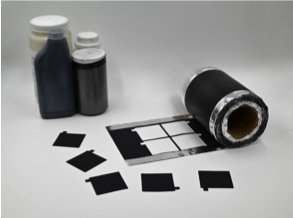 “RaiCore was the first product to be announced in the PFA-free and solvent-free battery space, thanks to this program,” Kumar says. “Within three months of joining ChargeUp, we were able to offer the product, so we beat the competition in both cases. By the time our competitor entered the market, we already had the momentum.”
“RaiCore was the first product to be announced in the PFA-free and solvent-free battery space, thanks to this program,” Kumar says. “Within three months of joining ChargeUp, we were able to offer the product, so we beat the competition in both cases. By the time our competitor entered the market, we already had the momentum.”
Since its July 2024 product launch, Ateios has secured contracts from both the private sector and the U.S. Defense Department worth $3 million.
“And now we’re getting inquiries from six of the major OEMs for pilots, after sending out sample kits to 10 companies,” Kumar says.
What’s next for Ateios
The company now has 10 employees, with plans to scale up further. In the long term, Ateios envisions serving numerous industries around the world, from electric vehicles to power grids to wearable tech. In the meantime, Kumar and his colleagues will continue to take full advantage of what they learned and the connections they’ve made — beyond the cohort’s graduation in October 2024.
In fact, ChargeUp is assisting Ateios with closing a new round of funding.
“Our partnership with ChargeUp continues. It has recently helped us secure a $350,000 R&D award from the NSF Engines Upstate NY Energy Storage Engine to accelerate the development of applying our technologies to other chemistries. Our goal is to offer products that impact 70% of the $50 billion lithium-ion battery market.”
Ateios and its technology even got praise from the founding inventor of the lithium-ion battery, “We’re excited to help develop a technology that eliminates the use of toxic solvents and forever chemicals,” said M. Stanley Whittingham, Nobel Prize laureate in chemistry and director of the R&D pillar of the Upstate New York Engine.
A founder’s advice to peers
Kumar appreciates the unique focus ChargeUp offers startups in his industry — and encourages peers to look into it.
“There are a lot of accelerators that are good for building business, but they don’t understand the nuances of the battery industry,” Kumar says. “ChargeUp understands the complexity and has the network of professional contacts and mentors — plus extensive funding.”
And why Binghamton?
“All the brightest minds are working on solving challenges in the battery industry right here,” Kumar says.
